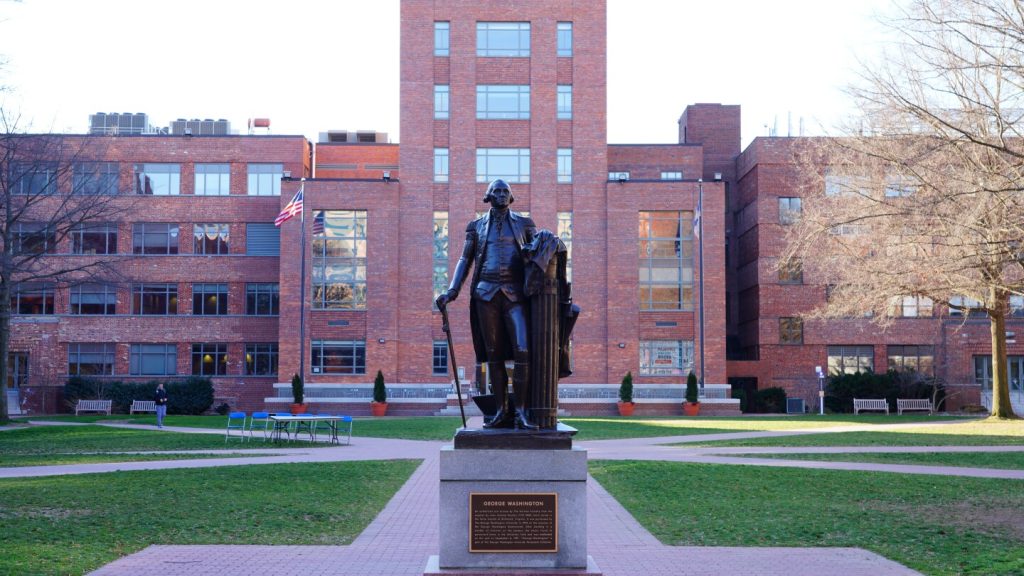Listen to the article
Federal Court Dismisses UAE-Linked “Disinformation” Lawsuit Against George Washington University
A federal court in Washington, D.C. has dismissed a lawsuit that alleged George Washington University (GWU), one of its professors, and several foreign entities participated in a “disinformation for hire” campaign reportedly financed by the United Arab Emirates. The ruling concludes a closely watched case that raised significant concerns about foreign government influence within American academic institutions.
Farid Hafez, an Austrian-born political scientist known for his research on Islamophobia and Muslim civil rights in Europe, filed the lawsuit claiming that Lorenzo Vidino, director of GWU’s Program on Extremism, collaborated with Swiss intelligence firm Alp Services and Emirati company Ariaf Studies and Research LLC to damage his professional reputation.
At the core of Hafez’s allegations was the claim that defendants conspired to falsely portray him as a member of the Muslim Brotherhood, an organization the UAE has designated as terrorist. According to Hafez, this campaign was part of a broader UAE-funded initiative to discredit Muslim scholars and activists throughout Western nations.
The case centered around Vidino’s 2017 report titled “The Muslim Brotherhood in Austria,” published through GWU’s Program on Extremism. In this study, Vidino identified Hafez as a prominent Brotherhood figure in Austria. Hafez maintained that Austrian authorities later cited this report during “Operation Luxor,” a 2020 police action that resulted in his detention and a search of his home.
Hafez brought claims under the Racketeer Influenced and Corrupt Organizations Act (RICO) and various District of Columbia state laws. His lawsuit alleged that the UAE, through donations and intermediaries, financed defamatory research intended to give official credibility to anti-Brotherhood propaganda campaigns.
On September 30, 2025, the U.S. District Court for the District of Columbia dismissed the case on multiple grounds. The court ruled it lacked personal jurisdiction over the foreign defendants and determined that Hafez failed to state a valid cause of action under either RICO or local law.
In its decision, the court noted that the alleged misconduct occurred primarily outside the United States and involved predominantly non-U.S. actors, placing the matters beyond the court’s jurisdictional reach. Importantly, the court did not make determinations regarding the accuracy of the specific claims against Vidino or GWU.
This ruling represents a significant setback for Hafez, who has been a prominent critic of what he terms the “Islamophobia industry” – a network he believes systematically promotes anti-Muslim sentiment through academic and policy channels.
The case highlights ongoing tensions regarding foreign influence in U.S. academic institutions, particularly through research centers and programs that may receive international funding. Critics have raised concerns that such arrangements could potentially compromise academic independence and objectivity, especially when research intersects with the political interests of donor nations.
The UAE has invested substantially in American universities and think tanks in recent years, raising questions about potential conflicts of interest in research related to political Islam and Middle Eastern politics. GWU, like many prestigious American universities, has received significant funding from international sources for various academic programs and initiatives.
Free speech advocates and academic freedom experts have watched the case with interest, noting the delicate balance between protecting scholarly independence and ensuring research isn’t influenced by external political agendas. The court’s dismissal on jurisdictional grounds leaves many substantive questions about these relationships unresolved.
Neither side’s legal representatives responded to requests for comment from the publication Focus on Western Islamism, which reported on the case’s conclusion.
As universities continue to navigate global partnerships and funding sources, this case underscores the complex legal and ethical questions surrounding international influence in academic research, particularly on politically sensitive topics involving international relations and religious movements.
Verify This Yourself
Use these professional tools to fact-check and investigate claims independently
Reverse Image Search
Check if this image has been used elsewhere or in different contexts
Ask Our AI About This Claim
Get instant answers with web-powered AI analysis
Related Fact-Checks
See what other fact-checkers have said about similar claims
Want More Verification Tools?
Access our full suite of professional disinformation monitoring and investigation tools




12 Comments
It’s concerning to see foreign governments allegedly trying to discredit scholars and activists through disinformation campaigns. This case highlights the need for greater transparency and accountability around such influence efforts.
I hope this case leads to increased scrutiny of how foreign actors may be trying to manipulate public discourse in Western nations.
This case underscores the importance of rigorous, independent research and the need to defend scholars from attempts to discredit or silence them. Glad to see the court upheld these principles.
The dismissal of this lawsuit is a win for academic freedom, but the broader issue of foreign disinformation campaigns targeting researchers and institutions is worrying. More needs to be done to protect the integrity of scholarship.
Agreed. Policymakers should examine ways to better shield universities and researchers from malign foreign influence operations.
Interesting case about alleged disinformation campaigns and academic freedom. Glad to see the court dismissed the lawsuit – it’s important to protect researchers and universities from foreign influence efforts.
Agreed, academic institutions must remain independent and able to conduct research without undue interference or retaliation.
This ruling sets an important precedent for protecting academic institutions from lawsuits aimed at silencing critical research. Free speech and intellectual inquiry are vital foundations of a healthy democracy.
Yes, the court’s decision upholds the principle that universities should be able to engage in robust debate and analysis without fear of retribution.
The court’s decision is a positive step, but the underlying problem of foreign governments allegedly trying to discredit scholars through disinformation campaigns is deeply troubling. This case highlights the urgent need for reforms to safeguard academic freedom.
While the court dismissed this particular lawsuit, the broader issue of foreign disinformation campaigns against academics and activists remains a serious concern. More transparency and accountability around these influence efforts is needed.
Absolutely. Protecting the integrity of academic research should be a top priority for policymakers and universities alike.